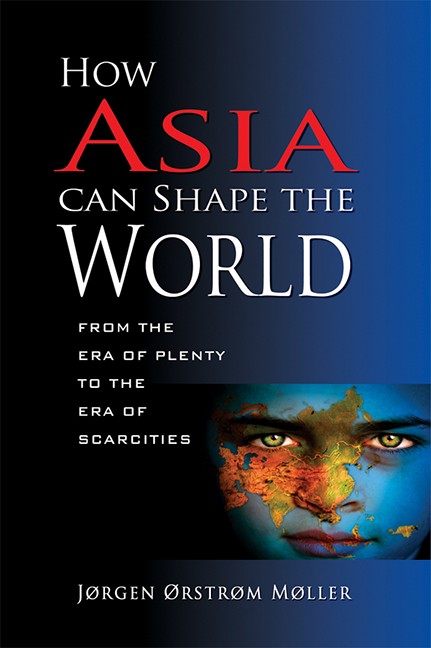3 - THE ASSETS
Published online by Cambridge University Press: 21 October 2015
Summary
After several decades Asia now seems anchored in economic globalization while at the same time moving into higher technology and using its savings to cement further economic progress. For Asia's policymakers a number of assets are available to assist economic growth that do not call for fundamental new policies, but competent management.
Economic integration is regarded as the first asset because it follows on from one of the main observations looking at individual behaviour, namely, that in the future, groups, social capital, and the ability to work together (share!) may be more important as a driver of growth than individual behaviour. Not only are the economic benefits considerable and visible — even the United States is moving towards a stronger commitment to integration with other countries — but the impact on the mindset is decisive. Integration pushes nation states towards trust among one another, first in a regional setting and an economic framework, developing into politics, and then, it is hoped, at a global level. Through regionalization the world moves optimistically towards global governance — so obviously imperative and yet so embryonic if it exists at all.
Asia is still in the catch-up phase with regard to technology, innovation, invention, and science. For a time that will be good enough, but the moment will approach when not only Asia's future, but global evolution, will depend on Asia's ability to turn from playing catch-up to showing leadership channelling funds into basic research. While there are many reasons for optimism with regard to continued technological development as manifested through patents and by students at home and abroad, as well as several other indicators, the verdict on science is much more blurred.
In this game one of Asia's most important assets can be brought into play: savings. All signs speak the same language and say that global savings will continue to take place in Asia, offering it the pleasant policy dilemma of how to use the money available, rather than pondering where to get the money from. Not only will Asia be the world's creditor, but Asia will take over a large part of global economic activity.
Multinational companies will increase in importance not only as a kind of harbour for economic and industrial activities, but as a global pacesetter, giving rise to what may be termed the political enterprise.
- Type
- Chapter
- Information
- How Asia Can Shape the WorldFrom the Era of Plenty to the Era of Scarcities, pp. 162 - 241Publisher: ISEAS–Yusof Ishak InstitutePrint publication year: 2010



